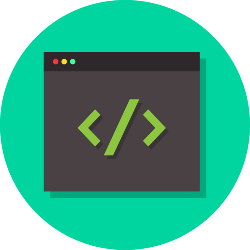

I recevied my PhD from Polytechnique Montréal (Canada) under the supervision of Prof. Gabriela Nicolescu at the Heterogeneous Embedded Systems Lab. My interests focus on multicore processing in critical embedded systems. Such architectures bring an increase of computational power at the cost of hazardous execution behaviours called interferences. This research leans toward the mitigation of such interferences. My work is currently applied to the aerospace industry (ARINC-653 compliant RTOS).
I am currently providing consultant services for embedded system design, developement and testing.
Aside from work, I enjoy bike rides, taking pictures, star gazing (astronomy in general), music (composing) and cinema. You can find some of my pictures on my Flickr page.
You can access my LinkedIn profile at LinkedIn: Alexy Torres and download my resume by cliking here or contact me using the following email address: alexy(.)torresa(at)gmail(.)com
The list of my publications is also available on my google Scholar Profile.

|
Mitigation of Hardware Interferences in Safety-Critical Multicore Systems
2023 PhD Thesis | Polytechnique Montréal |
|---|

|
Efficient Scheduling, Mapping and Memory Bandwidth Allocation for Safety-Critical Systems
2022 in 20th IEEE International NEWCAS conference |
|---|

|
Certifiable Memory Management System for Safety Critical Partitioned System
2022 in ERTS 2022 - 11th European Congress Embedded Real Time Software and Systems |
|---|

|
On the benchmarking of partitioned real-time systems
2020 in arXiv preprint arXiv:2007.10794 |
|---|

|
QEMTrace: A Multi-Platform Memory Tracer Based on System Emulation
2020 in Summer Simulation Conference 2020 |
|---|

|
Simulator-based Framework towards improved cache predictability for multi-core avionic system
2020 in Spring Simulation Conference 2020 |
|---|

|
Cache locking content selection algorithms for ARINC-653 compliant RTOS
2019 in ACM Transaction on Embedded Computing Systems |
|---|

|
Cache Predictability and Performance Improvement in ARINC-653 Compliant Systems
2019 Master Thesis | Polytechnique Montréal |
|---|

|
Software cache coherency support on Karlay many-core architecture
2017 Open Publication |
|---|
2022 in 20th IEEE International NEWCAS conference
2022 in 57th Design Automation Conference (DAC) Young Fellow
2019 in ACM Transaction on Embedded Computing Systems

Importance of validation and verification in the software engineering process. Testing and validation methods. Classification of methods. Reminder of structural testing methods and functional testing methods. Test generation for finite automata. Integration and installation test strategies for procedural and object-oriented programming. Statistical approaches to validation and verification. Development methods to ensure reliability. Planning software testing activities.
2021 Teacher Assistant | Undergraduate students level

Oriented object programming concepts (class, inheritance, polymorphisme). Operation and function overload, exception handling. Dynamic allocation, meta-programmation, basic algorithms (search, sort). Standard library, data structures. GUI and even driven programming.
2020 Lecturer | Undergraduate students level

This master course introduces the student to typical real time system architectures. The modelisation and temporal specification of the system are explained in details. The class also introduces specification languages for RT system design. Analysis tools are also presented and used during the practicals and RT operating systems are also presented in this course.
2018 - 2023 Teacher Assistant | Graduate students level

Introductory course to FPGA programming with VHDL, a hardware description language. The class presents the basic notions of combinatory and sequential circuits.
2018 - 2023 Teacher Assistant | Undergraduate students level





You can contact us for any questions and inquiries.
| corporate_fare | Address: Auverge Rhone-Alpes, France |
| call | Please ask via form / email. |
| Email: alexy(.)torresa(at)gmail(.)com | |
| language | Professional Website: https://olsontek.dev |